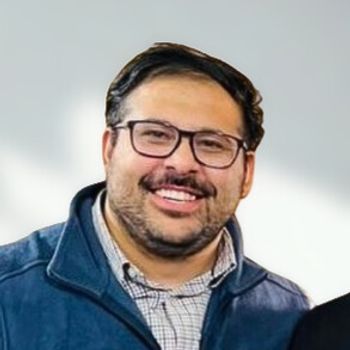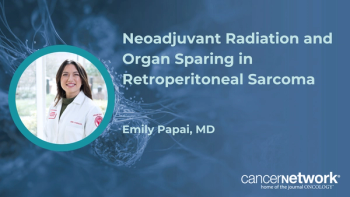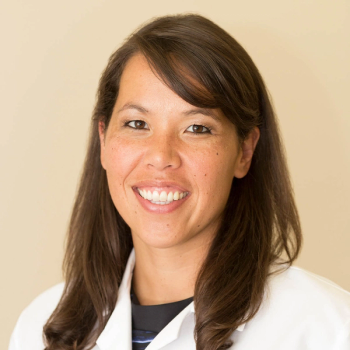
Oncology NEWS International
- Oncology NEWS International Vol 7 No 6
- Volume 7
- Issue 6
Cancer Prevention Efforts Should Not Wait on Definitive Causation Studies, Says Wynder
NEW ORLEANS--"We can reduce the incidence of a cancer with preventive interventions without understanding their mechanism of action," said Ernst L. Wynder, MD, DSc, Dr.med.h.c., president and medical director of the American Health Foundation in New York. Dr. Wynder gave the Seventh AACR American Cancer Society Award Lecture on Cancer Epidemiology and Prevention at the American Association for Cancer Research meeting.
NEW ORLEANS--"We can reduce the incidence of a cancer with preventive interventions without understanding their mechanism of action," said Ernst L. Wynder, MD, DSc, Dr.med.h.c., president and medical director of the American Health Foundation in New York. Dr. Wynder gave the Seventh AACR American Cancer Society Award Lecture on Cancer Epidemiology and Prevention at the American Association for Cancer Research meeting.
Dr. Wynder stressed that knowledge of a cause sometimes precedes knowledge of the underlying mechanism by decades or even centuries. For example, naval surgeon James Lind discovered in the mid-1700s how to prevent scurvy. But it wasnt until vitamin C was isolated in the early 20th century that scientists actually knew why Linds preventive treatments worked. Similarly, childbed fever and cholera could be prevented long before the mechanisms of action were known.
In his lecture, Dr. Wynder spoke of his own work in cancer causation and prevention, dating back to his research during medical school that led to his 1950 paper showing that nearly all lung cancer patients were smokers.
"We could have saved thousands and thousands of lives," Dr. Wynder said, if scientists and physicians had spoken out from the 1950s through the 1980s about smoking. Instead, many remained silent, while others cast doubt on the data linking smoking and cancer.
Dr. Wynder believes so strongly in the importance of studying both cancer cause and prevention that he founded a cancer research institute in 1969. This institute, the American Health Foundation, focuses on three areas--epidemiology, laboratory studies, and health promotion--and has a staff of 180.
Current research projects at the Foundation include a clinical trial of the effects of a low-fat diet on survival of breast cancer patients; a study of the effects of a low-fat diet, selenium, and soy products on the speed of increase in PSA levels in prostate cancer patients; animal studies of the effects of low-fat food and selenium on colon cancer; and studies of the role of estrogens in colon cancer and lung cancer.
Focus on the Children
Teaching children to take good care of their health is one part of the Foundations health-promotion efforts, one that Dr. Wynder speaks passionately about. "Im concerned about the high smoking prevalence among young people," Dr. Wynder said in an interview with Oncol-ogy News International. "The things we learn early in life stay with us forever. So we need as a society to focus on very early youth education, combining the influence of parents, school, and media."
He urges that every school make health education mandatory for even the youngest students and appoint at least a part-time teacher to coordinate health programs. He suggests longer school hours and school years, with parents occasionally going to school to interact with the children. He would like to see health fairs for children so that they can be screened early in life for health risks.
Dr. Wynder also proposes that government agencies that provide funds for prevention of such things as teenage pregnancy, obesity, hyperlipidemia, and alcoholism should combine their efforts. These combined funds could form the basis of a comprehensive program to train children to take good care of themselves.
He calls on the television industry to donate time each week for a "Health Minute." He proposes that in these public service announcements, cartoon pediatrician Dr. AAAH (pronounced "aah"), the "Healthy People Doctor", could educate 3- to 8-year-olds about good self-care. Dr. AAAHs sign-off would be "Nobody takes better care of you than you."
"At age 3, 30% of children know who Joe Camel is," Dr. Wynder said. By age 6, that figure rises to 90%. He suggests using Dr. AAAH as an antidote to Joe Camel to help counter the many unhealthy images that children are exposed to on television. "We cannot wait until age 12, 13, 14, or 15 to worry about smoking or obesity," Dr. Wynder said in the interview. "Weve got to start very early."
Articles in this issue
over 27 years ago
Vogelstein Discusses Gatekeeper Genes, Caretaker Genesover 27 years ago
Esophageal Cancer Rate Drops in Rats Fed Black Raspberriesover 27 years ago
How People Respond to Gene Testing for Adult Onset Disordersover 27 years ago
MIA Is Used to Monitor Immunotherapy for Melanomaover 27 years ago
Feds Upgrade ‘Healthfinder’ Websiteover 27 years ago
A ‘Gentle’ Immunotherapy Promising for Advanced Prostate Cancerover 27 years ago
UK, Australia, New Zealand Take Lead in Palliative Medicineover 27 years ago
Adjuvant Tamoxifen Effective in Younger Breast Cancer Patientsover 27 years ago
Antigen-Based Antitumor Vaccines Seem Most Promisingover 27 years ago
Wynder Given The American Cancer Society Award at AACRNewsletter
Stay up to date on recent advances in the multidisciplinary approach to cancer.





































